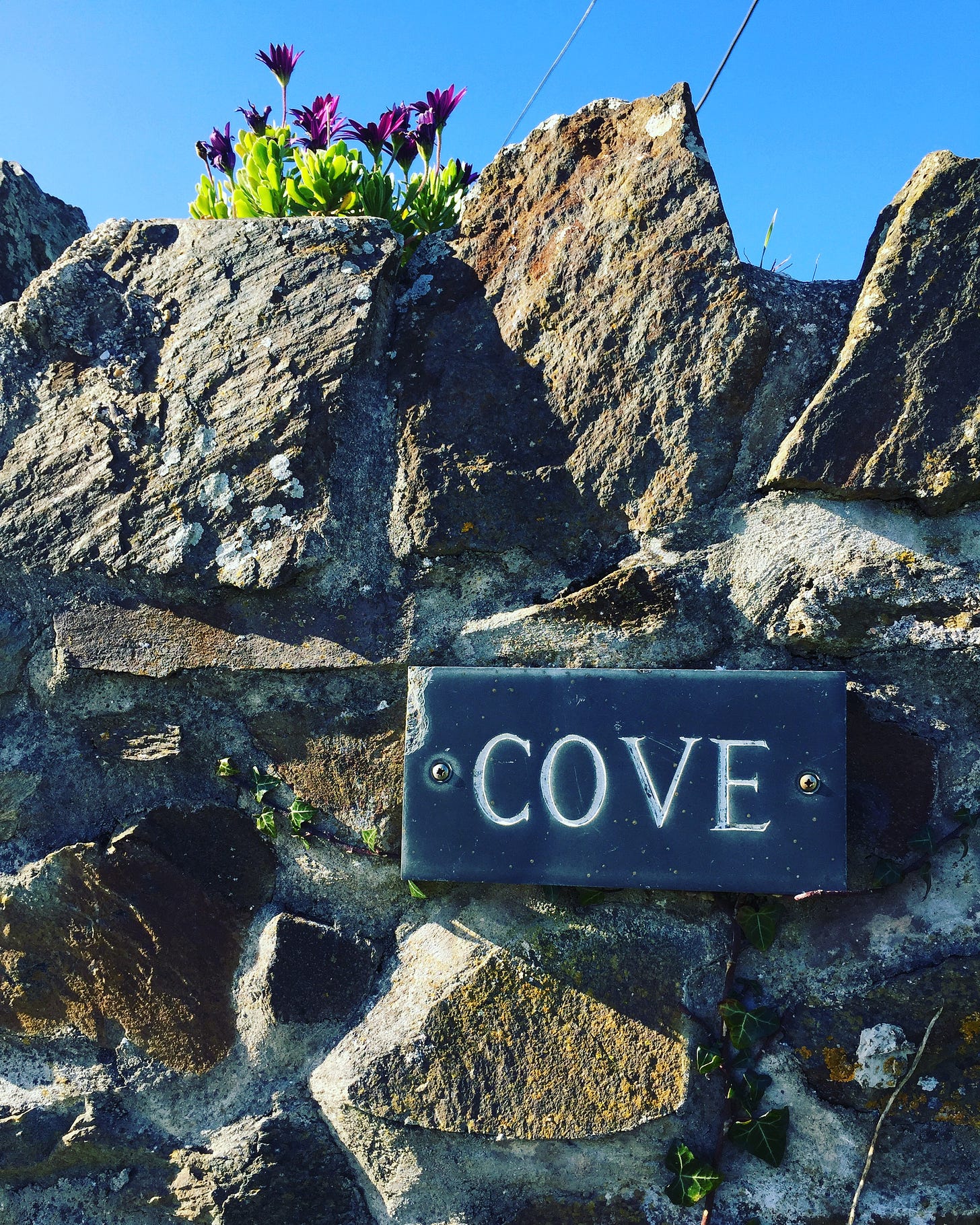Solastalgia: homesick at home
Solastalgia: homesick at home
In 2017 my parents sold a house that had been in our family for nearly 100 years. It was above the beach in Cornwall. Generations of the family spent months of our lives and shored up our hearts there.
My great grandmother bought it in 1922, she left it to my grandfather who left it to my mother who sold it. My parents had made it their permanent home in their sixties when they retired, but approaching their eighties it was too isolated, hours from a hospital, the roof was falling in, it needed investment and energy and a lifestyle they didn’t have to spare. The house is now gone; demolished and replaced with a glass box and a carport.
I don’t miss the past we had in that beautiful place. So much past. I first went there at four weeks old, as did both of my sons. We went every Easter and summer, often for freezing Christmases too. We spent every school holiday surfing on wooden boards, sneaking out for midnight swims, not brushing our hair, eating marmite and lettuce sandwiches on the rocks, picking mussels, hammering crab claws on the enamel-topped kitchen table, sleeping in heaps in the cabin, getting the ferry for pasties, sharing cheesy chips and shandy on the local hotel terrace, playing the fruit machines, turning brown and salty. My parents met there when my mum was sixteen. I was there for my O level results. I was there with pals the night Diana died. I got married there. My grandmother died and was scattered into the waves there.
Until I was an adult, it had no central heating and could be a bleak and unforgiving place in the darker months. I lived there alone one winter in my twenties. I slept under a mountain of old eiderdowns and wore my grandfather’s woolly jumper to gather driftwood from the little beach to keep the fire going. The houses either side were empty and the darkness at night was total. I loved it.
Anyway it’s gone. That’s how it played. Gen X woe; who cares. I don’t miss the past, I don’t feel nostalgic and pained about it. What I feel more accurately is solastalgia - the loss of the future. The times we might have had, my sons, my brothers’ children, and theirs.
Solastalgia: the existential distress we feel about the loss of a future. It is most often associated with climate change and eco-anxiety. The philosopher Glenn Albrecht wrote about it in 2005 in an article called Solastalgia: a new concept in human health and identity. He describes it as "the homesickness you have when you are still at home.”
Amitav Ghosh says that all projections of the future are fundamentally projections of power. The ruptured future which the climate emergency threatens to the West is the hardest for the powerful, stable West to wrap its head around. For many people in the wider world, rupture and instability, loss of habitat and livelihood, have already happened or long since existed and nobody projects onto a civic future in which they do not consider themselves power-holders.
The playwright Abhishek Majumdar has written a wonderful book called Theatre Across Borders. In it he says: “We go to the theatre with a paradoxical ambition: of wanting to remember the future.” Solastalgia ! The grief, the nostalgia, the searching for the future, for the summers we will and will not have. I hope this is what our future Chekhovs will write: the mourning and imagining of the world we could have, we could have had – not the one happening elsewhere.
Abhishek believes that “At the heart of every good play lies an argument for the future” – whenever the play is set, writers are writing what Edward Bond calls “blueprints of the world they will have to live in.”
I have to live in a world without that house in it. But, for now, for how long, the cliff and the beach and the paths we could all walk blindfold are still there. One day I’ll go back, and forward.




